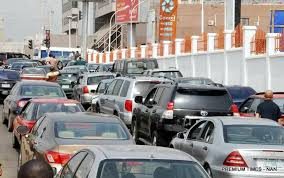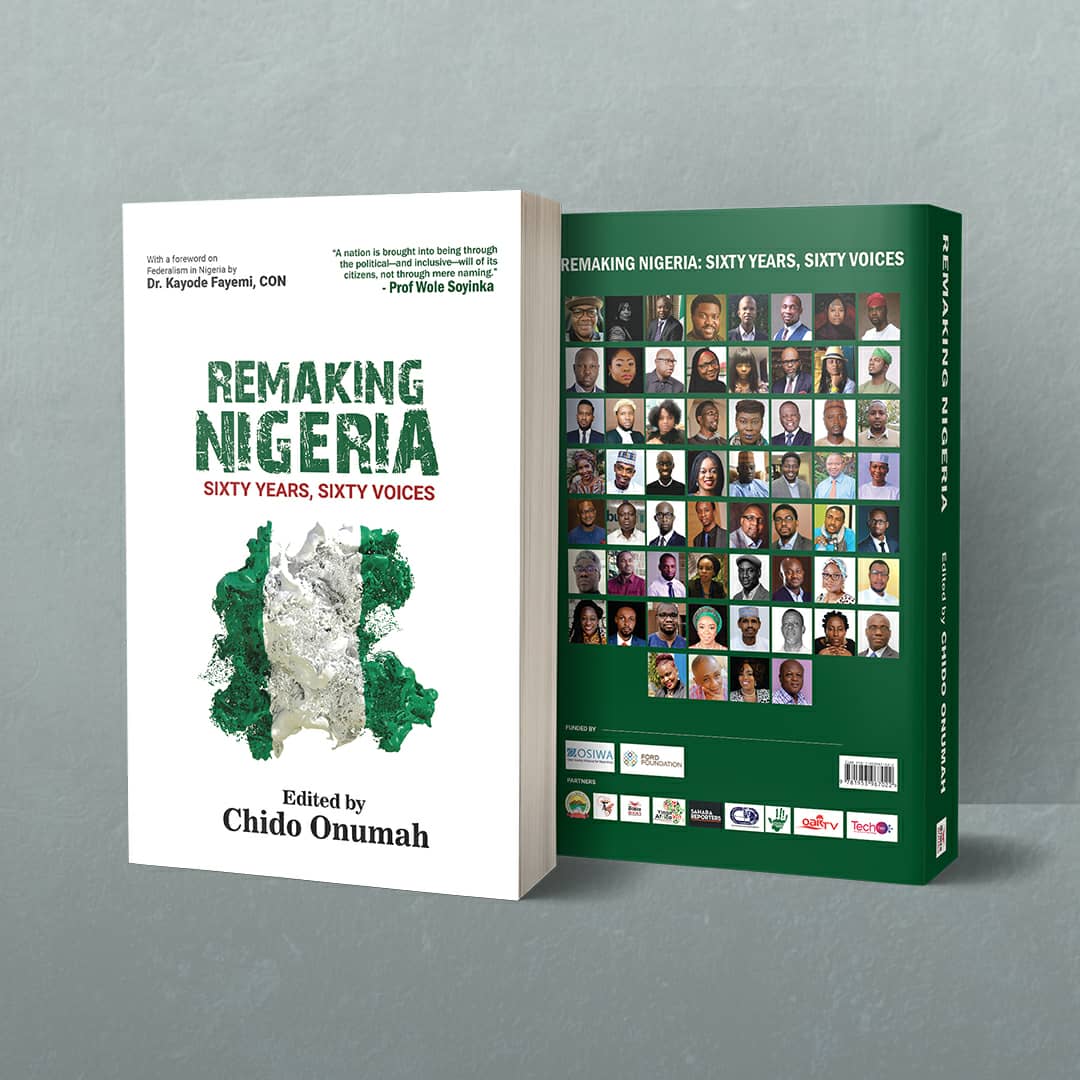[Covid-19: My Lockdown Diary] Day 2: It’s like the end of the world has come

By Theophilus Abbah
Though I announced, on Day 1, that, for me, the lockdown for coronavirus started on Sunday, March 29, Nigeria’s strict social distancing, a preventive measure, officially took effect from Monday, March 30. It would be intensified on Tuesday, March 31 – for two weeks.
I’m no clairvoyant, but I was still curious to know the furnace of fire on the path my family and I as we march through the impending uncertainty. How would we survive the load of famine, dearth and dryness being conveyed in the lockdown? How would the pains and misery of the lockdown on Monday be different from the disillusionment I endured on my uninspiring Sunday?
To answer this question, I decided, in the order of armchair and lazy researchers, to turn to Google.com. How? Legal lockdown [because it was pronounced by government] was unimaginable, especially, now that it would take two weeks, not like 12 hours that election restrictions would impose. For me, a nightmare that approximated the legal lockdown was a criminal lockdown I experienced over thirty years ago in a bloody, destructive and unforgettable sectarian violence against the late Evangelist Reinhard Bonnke’s crusade in Kano. In two days, the killers paralyzed peace in the ancient city and turned us, a starving population, into beggars and hangers-on at Bompai Police Barracks. The city was shut down for almost a week, but the predicament that accompanied it gave us the impression that life had come to a standstill for months or even years. That was when I realized that starving for one day could obliterate one year of pleasure, abundance and even gluttony. The mayhem was the storyline of my novel, Lost in the Wind (2012).

So, how do I predict what awaited me in the lockdown? I would search for what the people of Wuhan in China, from where coronavirus sprouted in December 2019, would have to say. Yes, I was riding on the crest of an inspiration. Human experiences are similar, so Wuhan lockdown could prepare me psychologically for the odd world I will walk through in the next two weeks.
If you read my experience on the first day, you would, by now realise that my life seems chained to my library. Yes, my library. Before my family struggled out of their bed on Monday morning, I had woken up my laptop, activated my Spectranet modem. Instantly, I noticed that it had begun to lie to me, saying the network was ‘connected and secured,’ when in reality, I could not launch unto Google. Okay, I had come to terms with being let down by one internet service provider. Next. I activated the hotspot of my MTN. As if it were drowsy, it woke up but was of no use. I turned to Glo. Still useless. Were internet service providers on lockdown, and so early on this first day? I wondered. Then, my eyes caught my daughter lumbering and shuffling from the kitchen to the living room. I asked her if she had internet connectivity on her phone. Yes. Etisalat came to my rescue. After begging it persistently for almost three minutes, Etisalat, through hotspot, granted me access to the world.
The key words – lockdown, Wuhan, experience. Google pages transported me into a land of misery. Chinese writer Fang Fang was already keeping a diary, a chronicle of the experiences of the people in Wuhan consistently for 60 days. The contents were ghostly. Unbelievable. Unimaginable. Cities without vegetables to buy. Scarcity of basic items. Water, food, everything had to be ordered from Taoboa, the biggest e-commerce website in China. As the people were quarantined, millions of them, imprisoned in their homes, motorcyclists rode from street to street and house to house, to deliver food and essential items to security men who passed those items to house owners. Previously busy streets were empty; and life effectively came to a standstill.
Is this possible in Abuja? I asked myself. Here anything is possible; could even be worse.
For over two hours I suffered the discomfort of a man laying on a comfortable water bed but plagued by obstructive insomnia. I was not at peace with myself, not sure of what I should do, not afraid, not full of faith, not able to fathom a source of solace, not sure of how to escape the inescapable gloom ahead.
Then, a thought occurred to me. Why not start from the beginning. I returned to my library and began to write down on a piece of paper what I needed urgently in the event of a complete lock-down – fuel to run my generator. Cash – in case of health emergency. Water, water, water. Woo unto me, the water from my borehole is not drinkable; I could drink it, but I would require a hospital ambulance stationed at the gate of my house if my children would try to drink of it.
As I wrote my list of needs, my phone rang. It was my wife.
“Where are you?” she asked, urgency ringing out of her voice.
“In my library,” I replied.
“Doing what? People are mopping up shops and petrol stations, but you’re on your laptop?”
She runs a small supermarket in our estate and had rushed out early to buy and stock daily needs for customers who would patronize her during the lockdown.
Quickly, I entered my jeans and drove out. First, to a petrol filling station. I met a long queue that frustrated me. Yes, fuel now costs N125/litre, no thanks to the plummeting prices of oil and gas in the international market. Why this queue? Almost every vehicle had multiples of 25 litres plastic containers, as if those containers were the passport to life in Abuja.

Fuel queue in Abuja
At the petrol station that serviced Sun City Estate, the dual queues extended to the estate’s gate. I joined one of them. From behind, I noticed how petrol attendants perspired, overwhelmed by the numbers of vehicles and gallons they had to fill for desperate and impatient customers. Many forgot their patience at home, so they howled, screamed at petrol attendants for being too slow in attending to vehicles ahead of them in the sprawling row. Five minutes after, my own queue was still and motionless; it made little or no progress. But behind me, it had elongated, like the ominous row of the dead. After almost two hours, I purchased 50 litres of petrol, enough for my car and generator.
Next, I drove to ATM machines at the Federal Housing Authority (FHA) in Lugbe. Another discouraging queue awaited me as I drove from one bank to another, without reprieve. Close to one of the banks was a supermarket that sold goods in wholesale. Many vehicles crowded around the environment that I had to look for a decoy. My initial instinct was that a ceremony was being held in disobedience to government’s social distance warning. But I was wrong. Abuja residents, car owners, were filling their car booths and seats with essential items. With the rush, one would think there was Santa Claus, Father Christmas, distributing free items to the people ahead of the lockdown.
Feeling stupid for not joining the buying frenzy, I instantly called my wife, to ask if we had enough meat in the house. Enough for a week? No. I quickly transferred some cash to her to purchase some from Lugbe market. Luckily, she called a butcher she patronized regularly. The man told her that she was late. There was no meat in the market. The butcher had actually slaughtered three cows on Monday, and before evening, they had all sold out. But he asked my wife to still drive down, promising to reserve some pounds for her. At the market, my wife was shocked as the place had been submerged by vehicles driven by desperate buyers who scrambled for meat as if the world was about to come to an end.
Then, inflation stepped into the rush. First, it hit bread. From my regular bread seller, I met empty shelves in the makeshift bus that had become her stall. There were few loaves of bread, though their prices had shot up. What used to go for N400 now grew an additional N50. Then, a pack of sachet water that sold for N100 now cost N150. It all sounded stupid. Face masks that I purchased for my daughter at N750 a pack now sold for N500 per piece. Hand-gloves which children played with became an indispensable accessory in the house, so its prices must be jerked up. Yams, food items were being mopped up. It all looked nauseating, and annoying.
But, in Nigeria, we are used to self-help. We sink our boreholes for water; hire private security to guard our communities; pay children’s school fees with our blood; contribute money to repair feeder roads; satisfy hospital entrepreneurs’ lust for money in order to keep healthy… So, we rush to help ourselves ahead of the impending lockdown over coronavirus.
Though over N22 billion had migrated as donations from the pockets of wealthy Nigerians into government coffers, we are not clear about how the money would be utilized. So much money is pouring into government coffers; how it would be used to cushion the effects of coronavirus on the people we don’t yet know. We’ve been told of funds that would go to the ‘poorest of the poor’ [we don’t know the indices used to fish them out] and for feeding school children who are on compulsory coronavirus break with their parents. Already, doubting Thomases on twitter are smelling corruption and are raising alarm.

For me, being quarantined to my library for two weeks would afford me the opportunity to attend to the backlog of work choking me out of comfort. It looked like a good period for me to settle many matters…
Then, the sad news arrived through my Nokia handset. It arrived from six hundred kilometres away, from my village. My amiable, hurt-no-fly, compassionate, affectionate, loving, affable, long-suffering uncle, Sunday Jonah, had passed on to glory. He was my uncle, a good accountant. He would be buried on Friday, April 3, 2020. Being locked down, or rather quarantined in my house in Abuja, I will not make the trip across the border from the Federal Capital Territory (FCT) to Kogi State for the funeral and burial. The police would smell me – I could be a cargo of deadly coronavirus from polluted FCT to my untainted home state.
So sad for me.

My late uncle, Sunday Jonah
Sunday, may your soul rest in peace.
The Insight Report
Nigeria Coverage



